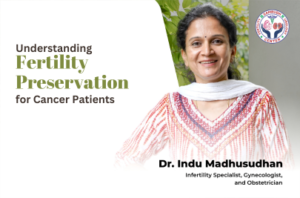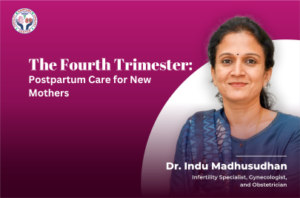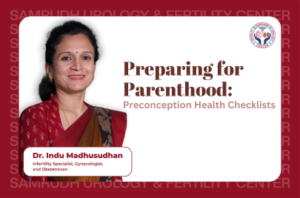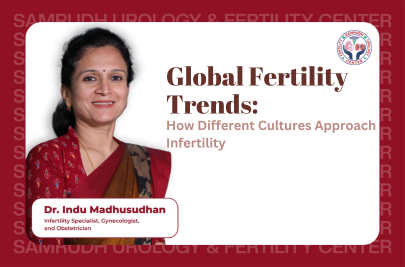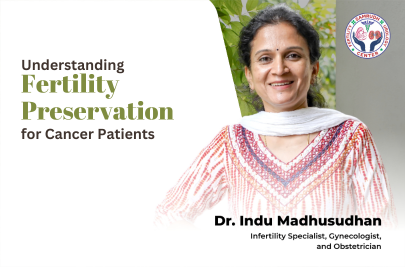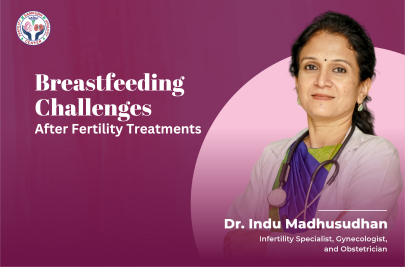Exploring the Diverse Approaches to Infertility Across the Globe
Infertility is a global issue that affects millions of couples each year. While the experience of infertility is universal, the ways in which different cultures approach the condition vary widely. These differences are shaped by a range of factors, including cultural beliefs, healthcare systems, access to treatments, and societal pressures.
At Samrudh Fertility and Urology Centre, located in Kumaraswamy Layout, Bangalore, Dr. Indu Madhusudan and her team are dedicated to providing state-of-the-art fertility treatments. However, understanding how infertility is perceived and treated in different cultural contexts is crucial for offering a compassionate and culturally sensitive approach to care.
Infertility in the Western World
1. United States and Europe: Advanced Medical Interventions
In many Western countries, infertility is increasingly seen as a medical condition that can be treated with advanced technology. The rise of In Vitro Fertilization (IVF), egg freezing, and surrogacy has given couples various options to pursue parenthood. In the U.S. and Europe, IVF is widely accepted and commonly used, with numerous fertility clinics offering a range of treatments.
One notable trend in Western countries is the growing acceptance of fertility preservation among women delaying childbearing due to career or personal reasons. Egg freezing allows women to preserve their fertility while focusing on other aspects of life.
However, infertility treatments in the West can be expensive, and not all individuals or couples have access to the advanced procedures available. Insurance coverage for fertility treatments varies widely, and many people face financial barriers to accessing these services.
2. Social Acceptance and Challenges
While fertility treatments are generally accepted in the West, they can still carry emotional and psychological challenges. Infertility may be viewed as a personal issue, and individuals often seek out support groups or counseling. The use of donor eggs, sperm, or embryos, as well as surrogacy, has become more normalized, though it can still face societal scrutiny in some areas.
Infertility in Asia: Tradition Meets Modern Medicine
1. India: A Blending of Tradition and Technology
In India, fertility struggles are often met with a mix of traditional practices and modern medical interventions. Traditional medicine, such as Ayurveda and unani healing practices, may be used in conjunction with conventional medical treatments. Couples often seek treatments that align with cultural beliefs, such as herbal remedies, yoga, and specific diets believed to improve fertility.
However, in more urbanized regions like Bangalore, IVF and other assisted reproductive technologies (ART) have gained significant popularity. In these areas, couples have access to cutting-edge fertility treatments, and the stigma surrounding IVF is slowly diminishing.
2. Cultural Attitudes Towards Infertility
Infertility is still a sensitive issue in many parts of India. In traditional settings, societal pressure can be high for women to conceive, as parenthood is considered a key component of family life. However, the growing acceptance of assisted reproductive technologies is gradually changing attitudes, especially among younger generations who are more open to medical intervention.
Moreover, India has become a hub for medical tourism in fertility treatments, with patients from around the world traveling to India for affordable IVF services. The country’s advanced fertility clinics, combined with lower costs compared to Western countries, have contributed to its rise as a global leader in fertility treatment options.
Infertility in the Middle East: A Region of Tradition and Technology
1. The United Arab Emirates (UAE) and Saudi Arabia: Combining Religious Sensitivity and Modern Fertility Treatments
In the Middle East, infertility is often perceived through the lens of cultural and religious beliefs. Islamic teachings generally emphasize the importance of family, which can make infertility a source of emotional distress for many couples. In the UAE and Saudi Arabia, fertility treatments such as IVF are widely available and accepted, but there are strict regulations regarding their use.
For example, in many Middle Eastern countries, donor eggs, sperm, and surrogacy are not permitted due to religious and cultural restrictions. However, IVF with the couple’s own genetic material is available and commonly used. The region has also seen an increase in the use of gestational surrogacy, provided the surrogate is from within the same family.
2. Social Stigma and the Role of Family Support
In many Middle Eastern cultures, infertility is still considered a private issue, and there may be a societal stigma attached to couples who are unable to conceive. However, the role of family support is crucial, with extended family members often being a source of emotional support during fertility struggles. It is not uncommon for families to become involved in decisions regarding treatments, especially when assisted reproductive technologies are considered.
Infertility in Africa: Traditional Healing Meets Modern Medical Approaches
1. Sub-Saharan Africa: Infertility as a Cultural and Social Issue
In many African cultures, infertility can carry significant social stigma. In some societies, the inability to have children is seen as a personal failure, especially for women. Traditional healing practices, including the use of herbs, spiritual rituals, and consultations with traditional healers, are often the first line of defense for couples facing infertility.
In more urbanized areas, however, assisted reproductive technologies like IVF are becoming more accessible. South Africa, for example, has a well-established fertility industry, with many couples seeking IVF and other ART procedures. Despite this, cultural norms often make it difficult for individuals to openly discuss infertility or seek medical help, especially in rural areas.
2. The Role of Religion and Social Expectations
In Africa, religion plays a significant role in how infertility is perceived. In Christian communities, infertility may be viewed as a test of faith, while in Muslim communities, it can be seen as a trial from God. The pressure to conceive can be intense, with many women feeling the weight of societal expectations. However, as access to fertility treatments improves in urban areas, there is a growing awareness of modern medical options.
The Role of Samrudh Fertility and Urology Centre
At Samrudh Fertility and Urology Centre, Dr. Indu Madhusudan recognizes the importance of providing culturally sensitive care to couples from diverse backgrounds. Understanding the cultural attitudes towards infertility is a key component of providing compassionate and personalized treatment. The center offers a range of fertility services, including IVF, ICSI, egg freezing, and sperm banking, tailored to each patient’s unique needs and cultural considerations.
Conclusion
Fertility and infertility are deeply intertwined with culture, tradition, and societal beliefs. From the advanced IVF treatments available in Western countries to the traditional approaches in Africa and Asia, cultures around the world have their own unique ways of handling infertility. Despite the differences, the common thread remains the desire for parenthood, and the options for achieving this goal have never been more diverse.
At Samrudh Fertility and Urology Centre, we are committed to providing expert fertility care that is not only medically advanced but also culturally sensitive, helping every couple pursue their dream of becoming parents.


